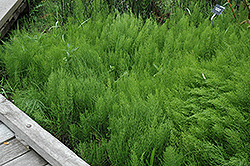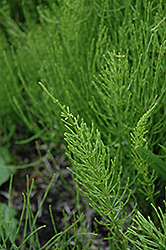Fri & Sat 8am - 8pm
Sun 8am - 7pm
Anytown, USA 12345
fax: 261.787.0463
e-mail: info@successgc.com


Plant Finder

Height: 24 inches
Spread: 3 feet
Sunlight:
![]()
![]()
Hardiness Zone: 4a
Other Names: Field Horsetail
Description:
A perfect selection for a wet boggy area of the landscape or at the edge of a pond or stream; masses of bamboo-like spikes creates a bold vertical effect that makes an excellent backdrop for a water feature; very low maintenance
Ornamental Features
Common Horsetail is primarily valued in the garden for its ornamental upright and spreading habit of growth. Its attractive sword-like leaves remain green in color throughout the season.
Landscape Attributes
Common Horsetail is a dense herbaceous perennial with an upright spreading habit of growth. Its medium texture blends into the garden, but can always be balanced by a couple of finer or coarser plants for an effective composition.
This is a relatively low maintenance plant, and is best cleaned up in early spring before it resumes active growth for the season. Deer don't particularly care for this plant and will usually leave it alone in favor of tastier treats. Gardeners should be aware of the following characteristic(s) that may warrant special consideration;
- Spreading
Common Horsetail is recommended for the following landscape applications;
- Mass Planting
- Border Edging
- Bog Gardens
Planting & Growing
Common Horsetail will grow to be about 24 inches tall at maturity, with a spread of 3 feet. It grows at a fast rate, and under ideal conditions can be expected to live for approximately 10 years. As an herbaceous perennial, this plant will usually die back to the crown each winter, and will regrow from the base each spring. Be careful not to disturb the crown in late winter when it may not be readily seen!
This plant does best in full sun to partial shade. It prefers to grow in moist to wet soil, and will even tolerate some standing water. It is not particular as to soil type or pH. It is somewhat tolerant of urban pollution. This species is native to parts of North America. It can be propagated by division.

